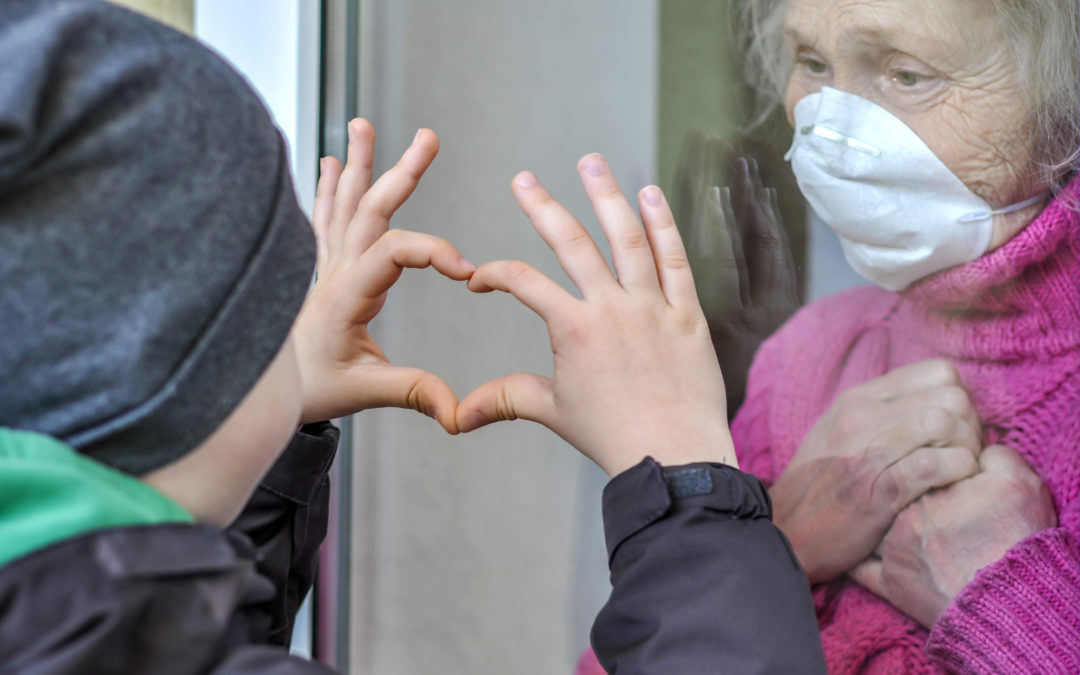
Safeguarding the Economy is Paramount for Everyone’s Well-Being
Safeguarding the Economy is Paramount for Everyone’s Well-Being
By Erik Randolph
Recent numbers in confirmed COVID-19 cases have been nothing but discouraging, but is it logical to turn back? The resurgence in confirmed cases may tempt our political leadership to reimpose shelter-in-place mandates and business shutdowns, but at this stage it would be a mistake.
The Resurgence
The recent data may be giving credence to those medical experts who have been arguing the lockdowns only delayed the inevitable. We must learn from the mistakes made and the impact the shutdowns have had on already heavily-impacted communities.
The official confirmed cases displayed on the Georgia Department of Health’s COVID-19 Daily Status Report webpage lags 14 days behind. Beyond that 14-day window at the time of this writing, the seven-day moving average of confirmed cases peaked at 763.1 on April 22 and began to decline. However, the average began rising again on May 10, and since May 25 the average has been steadily increasing. On June 24, the average reached nearly 2,000 cases, more than double its prior peak in April. There is good news on the Department’s webpage, reported deaths have been on a downward trajectory since the end of April. However, there is still much we do not know, including the unreported number of Georgians who successfully cleared the virus asymptomatically or otherwise.
Comparison to Other States
Compared to other states, Georgia does not look that bad. For example, deaths attributed to COVID-19 are far fewer in Georgia than in the Northeast.
On the economic front, Georgia’s shelter-in-place orders were far less severe than in other states, such as Michigan, Massachusetts, and Washington State. Recent unemployment numbers suggest a possible negative correlation between the more harsh measures taken by states and employment. Georgia looks good with an unemployment rate better than 72 percent of all states. In some cases, Georgia’s unemployment rate is drastically better. Georgia’s rate is 36.4 percent of Michigan’s rate and less than half of Massachusetts’s rate.
The Economic Situation Overall is Not Good
When Congress first passed legislation addressing the pandemic, the discussion was shutting and locking down for 14 days that might extend to a month’s time. Recall the talk about a “V” shaped recession with the economy quickly rebounding? With the crisis dragging into its fourth month, this is no longer the discussion.
In my last blog, I argued that the official unemployment rates understate the seriousness of the unemployment problem. While Georgia’s rate measured 9.7 percent, I estimated that the real problem was closer to 25 percent . This was just one metric. There are plenty of other metrics indicating potential for some serious economic damage.
First, the economic impact is not shared equally. Some industries—such as restaurants, bars, tourism, live entertainment, and brick-and-mortar retail stores—have been hit especially hard. Many of these businesses are smaller, mom-and-pop operations with lesser capacity to withstand long periods of economic hardship. Workers, too, have been unevenly impacted, with lower income households bearing the brunt of the negative impact.
It’s also been bad financially. About 3,600 companies filed for bankruptcy in 2020 thus far, 26% higher than the first six months in 2019. Cash reserves is a major issue. A Federal Reserve Banks’ survey found that three in 10 small businesses were financially at risk or distressed at the beginning of the pandemic.
We do not yet know the total loss in production due to our response to the coronavirus, but we know it will be bad. Production dropped 5 percent for the first quarter of 2020 nationally and 4.7 percent for Georgia. The loss for the second quarter will not be known until the end of the month when new numbers are released. Assuredly, the numbers will be worse.
Lost production is a great economic concern for all of us. It means lost societal wealth and hardships for many individuals and their families.
The Precarious Federal Fiscal Position
Since March, Congress has poured $3 trillion into the economy to help us sustain the hit. This is an enormous sum greater than the annual federal spending for social security benefits, Medicare, and all other mandatory spending programs. Additionally, the Federal Reserve is making trillions of dollars more available to help the public withstand the economic impact of the pandemic.
In the meantime, U.S. total debt now exceeds $26 trillion and continues to grow. This is more than the total annual production of the United States when last measured.
The temptation to reverse course in reopening the economy and looking to Congress and the Federal Reserve to bail us out with even more spending comes with enormous risks: high inflation, higher taxes, slower economic growth, and less wealth. Poorer communities and persons with lower income typically suffer more from these consequences.
These risks are based on fundamental principles in economics. We cannot spend money without someone, somewhere, at some time paying for it. With all the new money spent by Congress and created by the Federal Reserve, we will have one of two likely non-exclusive ways to pay for it: higher taxes in the future and/or inflation.
The much worse of the two is inflation. It is a hidden tax that everyone—rich and poor alike—must pay. It will erode wealth and opportunities for many.
An uptick in inflation will place the Federal Reserve in a precarious position. The standard tool is to increase interest rates. However, this can jeopardize any economic recovery from the pandemic. It will also exacerbate the federal budget deficit because of the extraordinarily high national debt, while potentially adding even more to the debt. In federal fiscal year 2019, the federal government spent $376 billion in interest payment to service the national debt—an amount equal to 28 percent of discretionary spending. This amount could easily double over the next few years.
The Best Course of Action
We cannot afford to wait for a vaccine. We must find our way to reopen the economy that is well managed and reduces risks to those most vulnerable to the virus.
Low-risk individuals, including almost all children, need to return to their routines as much as practically possible. This is the best way to extend opportunities for everyone and rebuild wealth so everyone can have fulfilling lives.
Our fate lies not only with Congress but also with our governors. Reopening the economy is necessary to avoid greater economic damage. Everyone’s well-being depends on it.
Erik Randolph is Director of Research at the Georgia Center for Opportunity. This article reflects his calculations, analysis and opinion and does not necessarily reflect that of the Georgia Center for Opportunity.
To learn more about what Georgia Center for Opportunity is doing to help get Georgians back to work check out our Hiring Well, Doing Good initiative.








